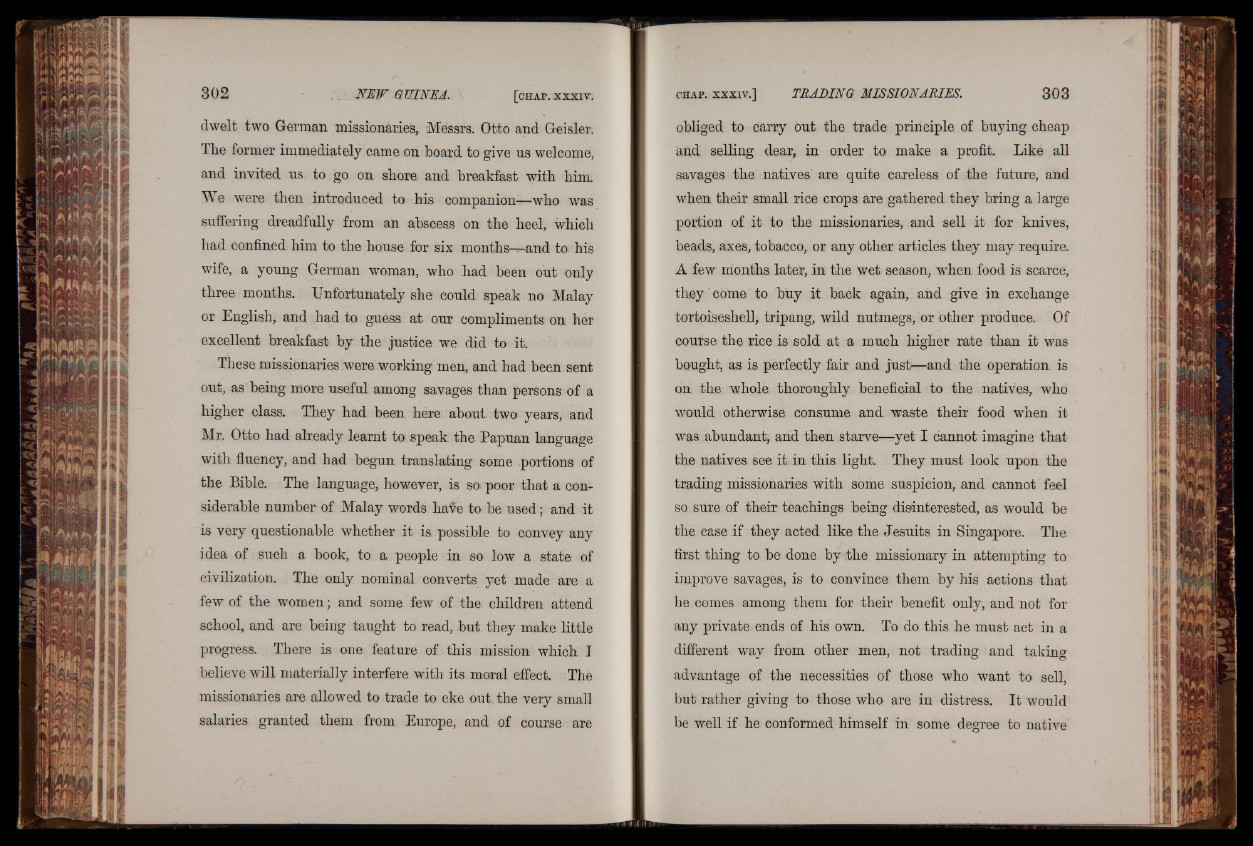
dwelt two German missionaries, Messrs. Otto and Geisler.
The former immediately came on hoard to give us welcome,
and invited us to go on shore, and breakfast with him.
We were then introduced to his companion-—who was
suffering dreadfully from an abscess on the heel, which
had confined him to the house for six months-r-and to his
wife, a young German woman, who had been out only
three months. Unfortunately she could speak no Malay
or English, and had to guess at our compliments on her
excellent breakfast by the justice we did to iff
These missionaries were working men, and had been, sent
out, as being more useful among savages than persons of a
higher class. They had been here about two years, and
Mr. Otto had already learnt to speak the Papuan language
with fluency, and had begun translating some portions of
the Bible. The language, however, is so poor that a considerable
number of Malay words haf e to be used; and it
is very questionable whether it is possible to convey any
idea of such a book, to a, people in so low a state of
civilization. The only nominal converts yet made are a
few of the women; and some few of the children attend
school, and are being taught to read, but they make little
progress. There is one feature of this mission which I
believe will materially interfere with its moral effect. The
missionaries are allowed to trade to eke out the very small
salaries granted them from Europe, and of course are
obliged to carry out the trade principle of buying cheap
and selling dear, in order to make a profit. Like all
savages the natives are quite careless of the future, and
when their small rice crops are gathered they bring a large
portion of it to the missionaries, and sell it for knives,
beads, axes, tobacco, or any other articles they may require.
A few months later, in the wet season, when food is scarce,
they “come to buy it back again, and give in exchange
tortoiseshell, tripang, wild nutmegs, or other produce. Of
course the rice is sold at a much higher rate than it was
bought, as is perfectly fair and just—and the operation is
on the whole thoroughly beneficial to the natives, who
would otherwise consume and waste their food when it
was abundant, and then starve—yet I cannot imagine that
the natives see it in this light. They must look upon the
trading missionaries with some suspicion, and cannot feel
so sure of their teachings being disinterested, as would be
the ease if they acted like the Jesuits in Singapore. The
first thing to be done by the missionary in attempting to
improve savages, is to convince them by his actions that
he comes among them for their benefit only, and not for
any private ends of his own. To do this he must act in a
different way from other men, not trading and taking
advantage of the necessities of those who want to sell,
but rather giving to those who are in distress. It would
be well if he conformed himself in some degree to native